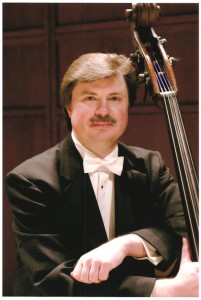
Photo credit: Michael Zirkle
Yet we are constantly bombarded with negative imagery about our industry. We face questions from the media about the relevancy of symphony orchestras, and in some cases, even our own managements question if their communities can continue to support their orchestras.
The musicians who founded ICSOM were brave enough to fight for recognition in their union as they sought to fulfill the mission statement they formulated in 1962: “To promote a better and more rewarding livelihood for the skilled performer.” It is daunting to realize that, simply by setting forth on this path, the founders of ICSOM met opposition from their own union and managements, and in some cases even came under the scrutiny of the infamous House Un-American Activities Committee.
The debt we owe these visionaries is huge. The only way we can properly repay them is to continue to build upon their successes. We must continue to educate and inspire our young musicians, or we face losing all that we have gained. I was amazed to discover how much I did not know about the great musicians who started us on this journey, even after being involved in ICSOM for over a decade.
Yet today we face new challenges. There are new economic trials, and we face a world that has a seemingly endless array of options when choosing how to listen to music. We must recommit ourselves to the goals of our founders and to the unity that has strengthened us for so many years.
Franklin Roosevelt said, “The only limit to our realization of tomorrow will be our doubts of today. Let us move forward with strong and active faith.” As musicians and members of our orchestras, we must demonstrate our commitment to our communities. Symphonic music will survive, and flourish, all across this country, simply by proving its relevancy to our community. A city or state should never ask, “Can we afford to continue to support our orchestra?” Instead, and most definitely, they must ask, “How can we afford not to?”
Our orchestras are ambassadors for our communities. We bring attention to our cities and education to our children. And, simply put, symphony orchestras are good business. A study that I love to cite is from my own home county of Wake in North Carolina. In 2000, it was determined that the total direct, indirect, and induced economic impact of the arts for this county totaled $66 million dollars. We have all read of the expected financial impact of the new Performing Arts Center in Atlanta. A recent article suggested that the estimated economic impact of that hall will be $2 billion in the first ten years. All of this should make it clear that donating to the arts is not just giving a gift; it is making a tangible investment in your community.
Another key part of the purpose statement that our founders formulated in 1962 said that ICSOM should be dedicated to “the enrichment of the cultural life of Society.” Let us now rededicate ourselves to serving our communities and enriching their cultural life. As we ask businesses, governments, and individuals to invest in us, let us return that investment by reaching out to our boards and the business community to create an atmosphere where the arts can flourish through a city, and a city can flourish through the arts.
We must strengthen ourselves so that we may counter the rhetoric that has been used to perpetuate the myth that the arts and symphonic music are losing relevance in our society. Symphonic music is everywhere in movies, on satellite and broadcast radio, in our schools, and our concert halls.
But as we strive to strengthen and reinvigorate our cause, let us remember that our organization is strong enough to welcome disagreement. We must work to elevate the tone of our debates, and we must always remember that we need not concern ourselves with attacks upon our orchestras from outside forces if we are at all willing to attack ourselves from within.
Some of our cities have lost their orchestras, and that represents a tragedy for the musicians who have dedicated their lives to their art. But it also is a tragedy for their communities. They have lost their ambassadors, their artistic mission, and their educational outreach. Let ICSOM now strive to become a more politically astute organization, one that continues to grow and learn from the past. Let us communicate far and wide that orchestras are relevant, and indeed crucial, to our communities.
One of our challenges is to re-engage the members of our orchestras in the business of their workplace. All too often, musicians take the improvements in their livelihood for granted. We must never forget how far we have come. And as we study the successes to be found in many of our orchestras, we must also study and learn from those who are facing troubles. ICSOM can serve as a beacon of hope so that our orchestras and our musicians can thrive as contributing members of their communities. Let every city come to see their orchestra as a resource for the people who live there, for the children who learn there, and for the companies that do business there.
Adlai Stevenson said, “It is often easier to fight for our principles than to live up to them.” Those who founded ICSOM established a very high standard for us to uphold. Let us honor their bravery, and their fight, by adhering to their principles and by communicating our message to our youngest colleagues and to our communities all across the nation. Our message is certain: orchestras are relevant in our society. Orchestras are an investment, with financial and educational impact upon our cities. Every orchestra is a family, and every manager has been granted a sacred trust with their community to preserve that family.





